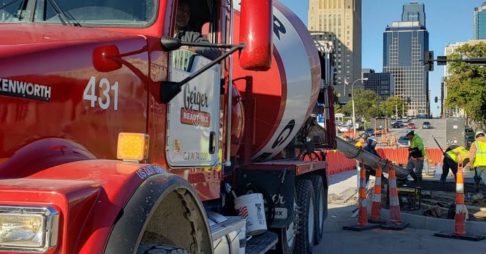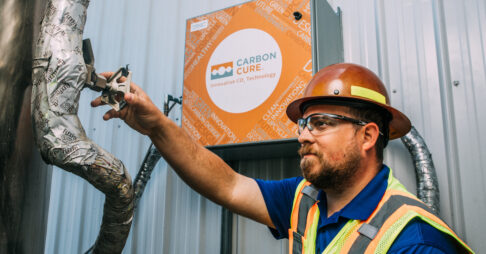When the team at Geiger Ready-Mix decided to adopt CarbonCure’s sustainable concrete solution, they decided to go all in by installing the technology into all of their plants across Kansas and Missouri simultaneously.
“Since 1995, one of our core values has been respect for the community and environment. We saw CarbonCure as a way to help us live up to that. We try to adopt new technologies as they come along if we feel like they're good ones and CarbonCure sure seemed like a good one,” said Jim Jauernig, VP of Sales at Geiger.
At the beginning of 2021, Geiger installed CarbonCure’s concrete technology into their seven permanent and two portable plants serving the Kansas City Metropolitan Area. Since then, they’ve successfully used low carbon concrete in all of their residential work and in many commercial projects, including the aquarium at the Kansas City Zoo and a local greenway trail.
In a recent webinar, Jim Jauernig, VP of Sales, Chad English, Quality Control General Manager, and Billy Daniels, VP of Operations shared their experience with implementing CarbonCure across Geiger’s plants.
Going All In
From their very first meeting with CarbonCure, the team at Geiger was impressed and felt confident in the technology, how it is implemented, and its benefits. “We felt like CarbonCure fits our industry's need to address its carbon footprint. The best part about it was we felt like you did it in a way that was beneficial to us, our contractors, owners and developers,” said Jim.
Because Geiger shares jobs and cement between multiple plants, adopting CarbonCure’s technology in all plants at the same time eliminated unnecessary complexity and confusion. “Anybody that's been in a dispatch office of a ready mix company knows how hectic it can get. Anything we can do to streamline things and simplify things, we try to do,” said Jim.
Making changes to this extent creates its own complexity, but this was managed with the backing of Geiger’s executive team and CarbonCure’s comprehensive onboarding process. “CarbonCure does a very good job of spelling out what you need so you can be prepared when the systems come in,” said Billy.
To start, Geiger used a small temporary CO2 tank for testing with one system while waiting for delivery of the larger CO2 tanks from their gas supplier. “Six large, six-ton CO2 tanks, that's not something they just have on the shelf,” said Billy.
Once these tanks were delivered, installing CarbonCure’s technology was a straightforward process, with no disruption to daily operations or production.
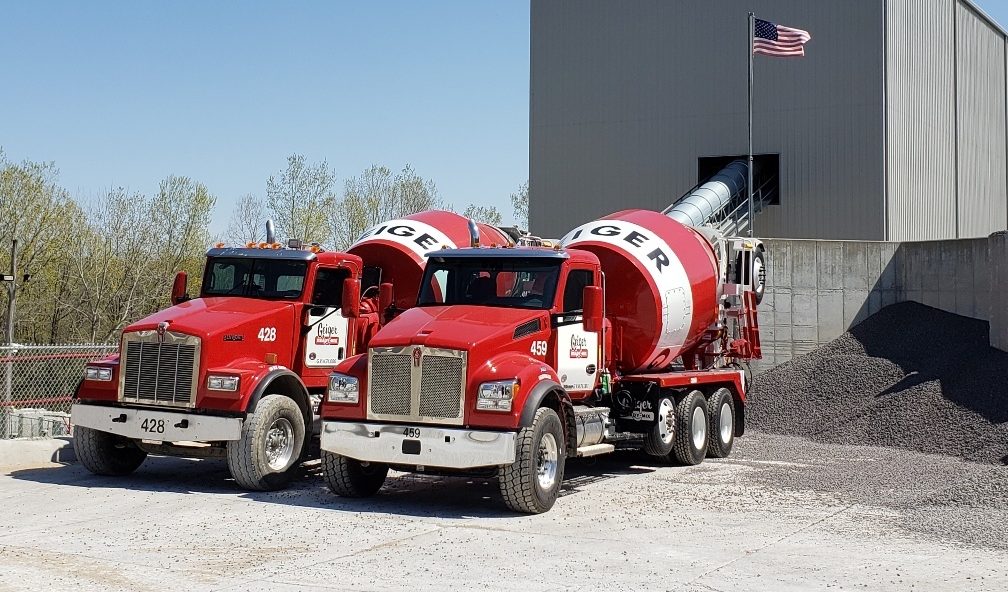
Maintaining Quality
Geiger put CarbonCure’s technology through a careful and thorough testing process in order to ensure that the high-quality ready mix concrete they’re known for wouldn’t be compromised.
To start, they tested multiple loads of two straight cement mixes, a plain and air entrained mix with and without CarbonCure. “We wanted to kind of see apples and apples here, and see what CarbonCure was or might be going to do to our mixes,” said Chad. “So we knew right off the bat that this was working and we were ready to go.” Testing showed that they were typically gaining about 5 to 10% in strength on the 28-day test results, with no impact on workability, finishability and set times.
These results have borne out in their customer’s experiences, who haven’t encountered any issues with the concrete created with CarbonCure.
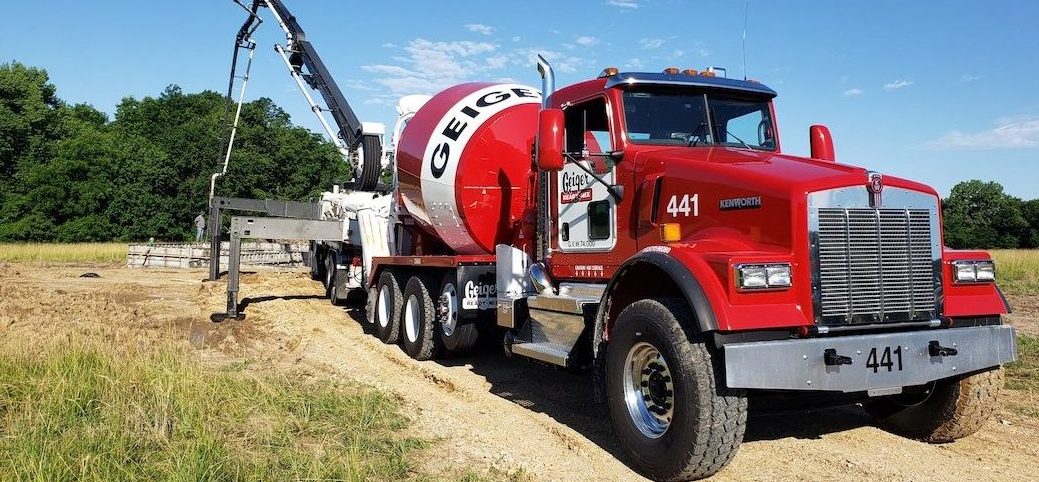
A More Sustainable and Economical Mix
Geiger recognized the potential for reducing the cement in their mixes to produce a more sustainable and economical mix. They started by reducing cement by 3%, increasing to 5% with excellent results. They’ve recently started testing 7% cement reductions on residential 4000 psi (27.6 MPa) mixes. “We run a surface resistivity testing on all of our 28 day and 56 day cylinders and the results have stayed the same, or even slightly been better in some cases,” said Chad. Other testing, including rapid chloride permeability tests (RCPT) and ASTM C1202, has also shown the lower cement mixes to be in line with the original mixes.
Since adopting CarbonCure at the beginning of 2021, Geiger has already delivered over 21,000 truckloads of sustainable concrete, which achieved carbon savings of more than 1,200 tonnes of CO2. That’s equivalent to 1,376 acres (557 hectares) of forest absorbing CO2 for a year.
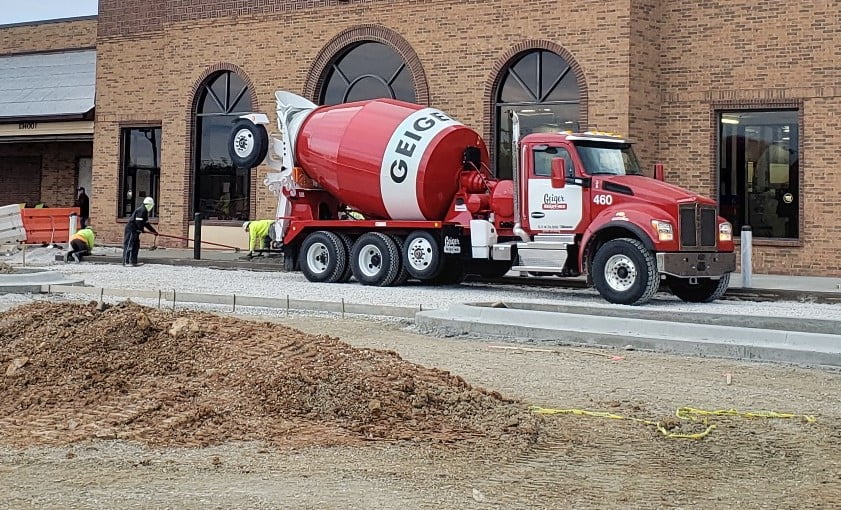
Moving Forward with Change
Geiger uses CarbonCure in all of their residential work and has found residential contractors very receptive to the CarbonCure mixes.
Commercial projects, however, have proven to be more of a challenge. Prescriptive specifications set out a maximum water-to-cementing materials ratio, which can limit the use of CarbonCure’s technology by not allowing the cement content of a mix to be reduced.
While the water-to-cementing ratio isn’t always an obstacle – Geiger has successfully bid for commercial jobs using CarbonCure – Jim admits he’s encountered resistance from engineers in commercial projects. But he sees the bidding process as an opportunity to get in front of engineers and specifiers. “They're sometimes slow to adapt, which is probably okay - they have a lot of responsibility,” said Jim. “But their buy-in is going to be key moving forward.”
Jim is optimistic about CarbonCure’s sustainable concrete technology being accepted into even more and more commercial projects. “I definitely think this is gaining momentum. You can just feel it, it gets easier every day,” he said.
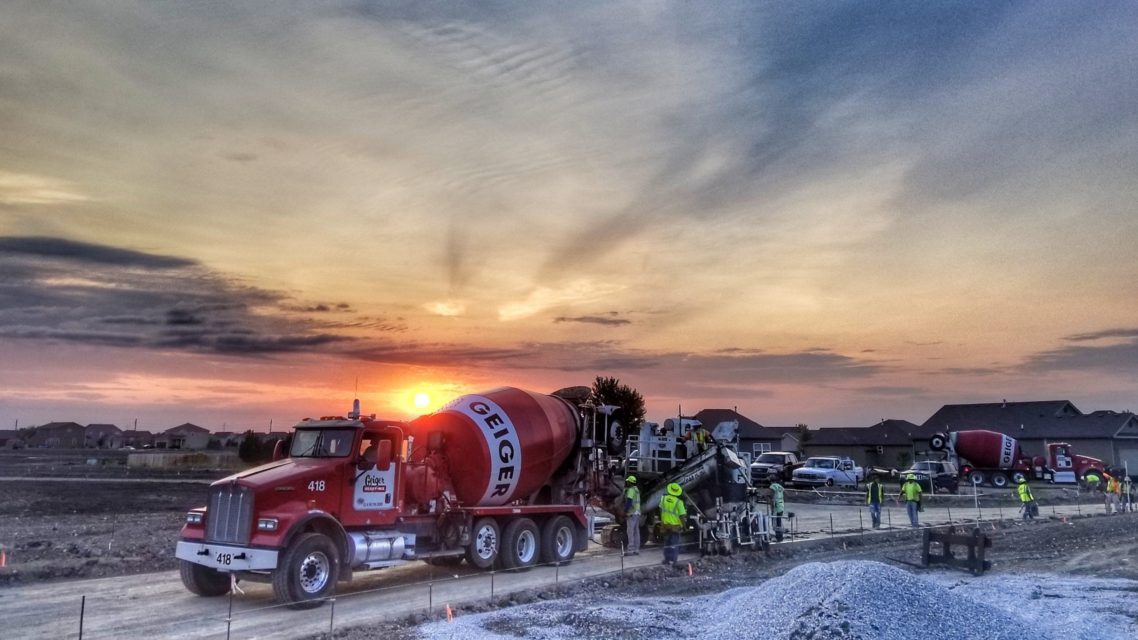
Being Successful with Sustainable Concrete
For producers who are considering reducing the carbon impact of their concrete, Jim, Chad and Billy offer the following advice:
- Tackle the low-hanging fruit first. Jim points to their experience using CarbonCure with residential jobs as an example of starting with projects more open to change. “We flipped the switch with residential contractors and we haven't looked back,” he said. “From that point on, it gets a little more challenging, but it's like anything else when it's new. You have to get buy-in and we feel that's happening.”
- Use data to prove your case. Chad encourages producers to reach out to CarbonCure’s Technical Services and Support team for help getting the data you need to prove the benefits and quality of the technology. “They do a lot of testing themselves right beside you. And once you start seeing that data, you'll get buy-in from the rest of the people in your company.”
- Build a strong relationship with your gas supplier. Billy cautions that there might be a learning curve for gas suppliers at first. “We're slow some days and then we're super busy the next. Those inconsistencies are kind of a challenge until you build that relationship with the supplier.”
